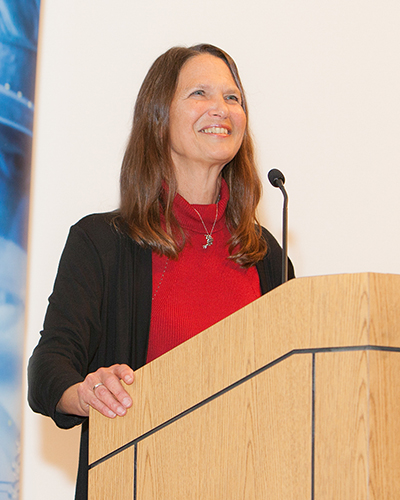Master of the brain game
“I’m fascinated by events in brain development and want to understand them better,” says highly regarded neuroscientist and professor Hollis "Holly" Cline, PhD. She co-chairs the Department of Neuroscience at Scripps Research’s California campus with her counterpart in Florida.
She also directs the institute’s Dorris Neuroscience Center where a multidisciplinary team of scientists uses state-of-the-art neuroscience approaches to investigate the complexities of the brain. Cline finds it a pleasure to share her discoveries with the center’s benefactor, Helen Dorris, a lifetime advocate for mental health who often stops by. “Helen is wonderful,” says Cline. “She is on top of the work that we do and I enjoy talking with her about the science.”
At the center, Cline focuses her investigations on how experience shapes brain connections, on how the cellular and molecular mechanisms triggered by sensory input ensure that neurons connect correctly with one another. She also explores what happens when that process goes awry, particularly in developmental disorders such as autism and Fragile X syndrome.
Her research has shown that the connections between neurons undergo constant revisions as the young brain develops, with new routes forming and others dropping away in a matter of hours. This interplay between the formation and removal of connections is not only affected by experience; control of the elimination of connections appears to be implicated in some disorders, including Fragile X. Cline’s research is also showing how stimulation from the outside world balances the development and ratio of excitatory neurons and inhibitory neurons, each destined for different jobs in the brain.
“One of the main reasons I came to Scripps Research [from Cold Spring Harbor Laboratory] is the strong interaction between biology and chemistry here,” says Cline. “That’s a unique draw that moves science forward. The neuroscience group is tightknit and highly interactive. It’s a rewarding environment to work in.”


